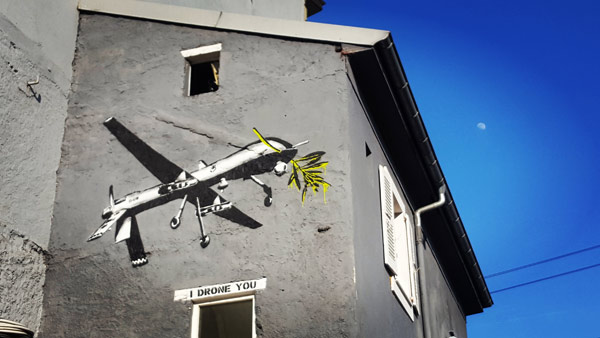This week, countries that have signed onto the Arms Trade Treaty (ATT) are meeting in Geneva where they will discuss the implementation of the treaty at the 3rd Conference of States Parties. PAX experts are also there to encourage States to critically reflect on the growing proliferation, use and misuse of armed drones. To that effect, PAX has published a policy paper recommending strong international standards on the use and export of armed drones.
In addition, a group of 19 non-governmental organizations, including PAX, has published a statement calling on the countries at the ATT to adequately address the full range of risks and harm associated with the export and use of drones. The ATT is an international treaty that regulates the international trade in conventional arms. Currently the Treaty has a total of 92 States Parties and 130 Signatory States.
Deadly violence
The use of armed drones is increasingly becoming an issue of concern as more states and non-state actors are seeking access to these remote controlled weapon systems. Yet little discussion is taking place on the consequences of this type of warfare and how it leads to more use of deadly violence outside the battlefield. France recently announced the country would arm its surveillance drones to be used against armed groups in the Sahel in northern Africa, and drones produced in China are driving a rise in exports to Middle Eastern countries.
However, there is a lack of legal clarity around the use of armed drones, in particular when it comes to targeted killings in counter-terrorism operations. Their increased use combined with absence of risk to one’s own military personnel will likely lower the threshold for the use of lethal force by states deploying armed drones. In addition, new drone technological developments will challenge existing arms export control mechanisms, that have limited participation from states or are based on voluntary principles. Drones are getting smaller and cheaper, and create new military opportunities. Hence it is necessary to effectively regulate the use and export of armed drones and related technologies.
Strong international standards
In a new policy paper, ‘Global Ambitions for Armed Drones’, PAX urges states to develop a strong, legally binding instrument that aims to address the human rights and international humanitarian law concerns, implement strict controls and prevent civilian harm and misuse of armed violence with drones PAX has drafted five recommendations for building strong international standards around this topic, including that the process leading up to this instrument should be done in a transparent and inclusive manner.
Read the joint statement on article36.org.
Read more about the work of PAX on drones.




